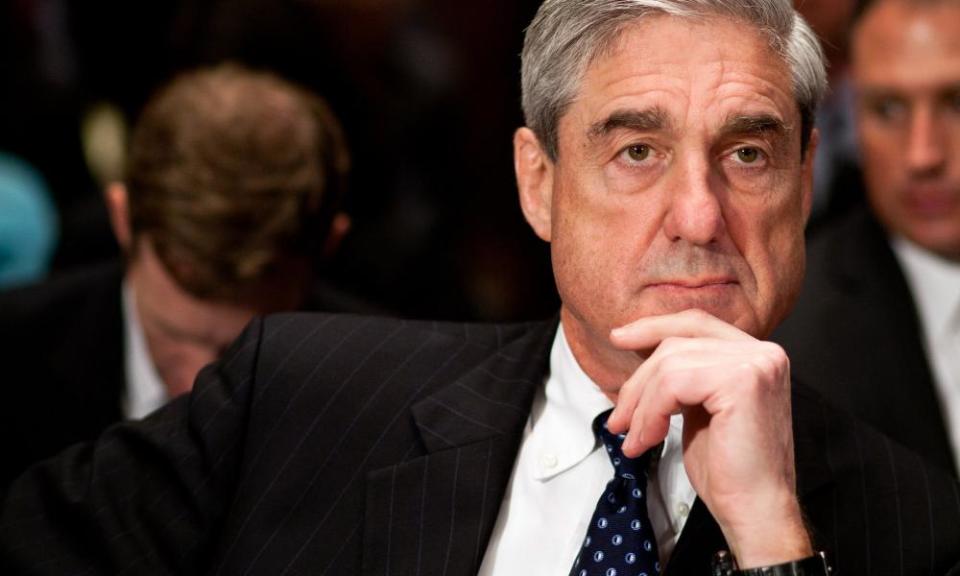America's body politic awaits the 'Mueller report', or is it already reading it?
One theory is that special counsel Robert Mueller is using pleadings on the Trump-Russia investigation to make his report

Last February, legal analysts reeled at the indictment of 13 Russians for alleged election tampering in the US, not only for the extraordinary nature of the charges but for the remarkable way in which the indictment was written.
Special counsel Robert Mueller had chosen to tell a story, about a multi-stage, years-long plan directed at the top levels in Moscow to interfere in the 2016 US presidential election using multiple techniques, from attempted voter registration hacking to social media monkey-wrenching.
Yet it was unlikely that any of the Russians would ever appear in a US courthouse. But, with his indictment, Mueller had disclosed details – including an account of an intelligence-gathering road trip that two of the Russians took from California to New York – that would cast suspicion on the motives of anyone who denied the Russian plot.
As well as legal charges, some observers spotted a broader power-play by the man tasked with investigating possible collusion between the Trump campaign and Russia. Among the first analysts to see a canny purposefulness in Mueller’s use of a “speaking indictment”, as it is known, was Marcy Wheeler, a journalist who writes about national security issues and civil liberties on her web site emptywheel.
By using criminal indictments and informations, sentencing memoranda and other official filings to tell a bigger story, Wheeler has since noted, Mueller has diminished the need to issue a doorstop “Mueller report” at the end of his investigation, in order to bring his discoveries to light. In effect, as America’s body politic awaits the Mueller report with bated breath – it might in fact be already reading large chunks of it.
The Mueller report, in this sense, is being written in chapters and excerpted in court documents, under Donald Trump’s nose. Chapters to come soon might detail previously unknown features of the Trump campaign’s relationship with Moscow, just as plea documents submitted by Mueller last week shed new light on the Trump Organization’s effort to build a Moscow tower.
The theory has gained traction in legal circles. “I’m down with the theory that Mueller will use pleadings to ‘make his report’, as @emptywheel suggests,” the lawyer Ken White recently tweeted @popehat. “My sense of Mueller is that he’ll do it in cases where it’s material, though” – meaning no gratuitous expository writing by the special counsel.
One such case will resurface on Friday, when Mueller is scheduled to submit a report describing how the former Trump campaign chairman Paul Manafort broke his plea agreement by allegedly lying to investigators.
The Mueller report is being written in chapters and excerpted in court documents, under Donald Trump’s nose.
That document is expected to shed light on what Mueller knows about Manafort’s contacts with his former partners in the former Soviet bloc, and it could hold new information about the nature of ties between the Trump campaign and Russian operatives.
However, other experts think Mueller will still submit a final full report to the justice department.
“I think there will be a report at the end, because I think there’s a whole lot more that needs to be laid out and put together, and the whole picture presented,” said Alex Whiting, a Harvard law professor and former prosecutor on the international criminal court.
“People have talked about he’s trying to get the story out through these speaking indictments and speaking informations. I don’t think that – my guess is that Mueller is just sort of doing his job and and doesn’t have some sort of grand strategy that way.”
Even analysts, who find the notion plausible that Mueller is writing his report in public in pieces, think he still might file a report with his superiors at the justice department at the conclusion of his investigation.
Wheeler has separately noted that Watergate precedent affords a path for a Mueller report to make its way to the House judiciary committee, even if Mueller were fired.
Federal code governing the special counsel’s work explicitly demands a report: “At the conclusion of the Special Counsel’s work,” the law says, “he or she shall provide the Attorney General with a confidential report explaining the prosecution or declination decisions reached by the Special Counsel.”
But with apparent Trump loyalist Matt Whitaker currently running the justice department, there is ample concern that such a report might be suppressed. Trump himself has even called publicly for the investigation to be ended and frequently lambasts Mueller and his colleagues as conducting a “witch hunt”.
“[Whitaker] plays a crucial role in determining what report by Mueller, if any, is given to Congress and ultimately the public,” wrote Neal Katyal, an author of the special counsel regulations, in the Washington Post.
Whatever Mueller’s plan, the overwhelming sense is that he has one – if simply to work and follow the investigation wherever it leads and despite what obstacles – or tweets – might be put in his way.
Or, as the lawyer and former FBI agent Asha Rangappa put it after Trump installed Whitaker: “Mueller has this whole thing booby trapped for precisely these kinds of Mickey Mouse moves by POTUS.”

